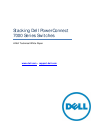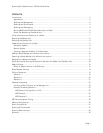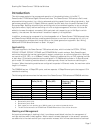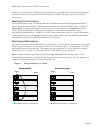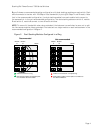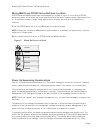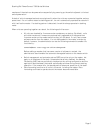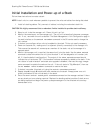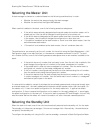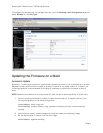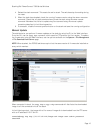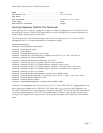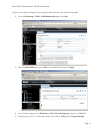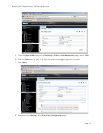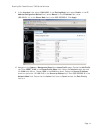
Stacking Dell PowerConnect 7000 Series Switches
Page 2
Introduction
This white paper explains the purpose and operation of the stacking feature in the Dell™
PowerConnect™ 7000 Series Gigabit Ethernet switches. The PowerConnect 7000 series is Dell’s most
advanced switching product line, offering advanced switching capabilities including high-density, high-
performance stacking, and 10 Gigabit Ethernet capabilities that scale from the small business to the
Enterprise Edge. Stacking allows multiple switching units to be combined together to act as a single,
high-performance, highly resilient switching unit with a single management interface. Units can be
added to increase throughput as needed. With each stack unit supporting up to 184 Gbps in switch
capacity, the customer can have almost 2 terabits of capacity in a single stack.
In addition, stacks can be composed of an interchangeable mix of PowerConnect 7000 Series switches
and PowerConnect M6348 switches, enabling administrators to continue to leverage the full utility of
previous-generation switches while transitioning to the latest-generation equipment. See “Mixing
M6348 and PC7000 Series Switches in a Stack” on page 5.
Applicability
This paper applies to the PowerConnect 7000 series switches, which includes the PC7024, PC7048,
PC7024P, PC7048P, PC7024F, PC7048R, and PC7048R-RA Dell model numbers. Each PowerConnect
switch has two bays that can be customized to support a stacking or an uplink configuration. Each bay
can contain a CX-4, SFP+, or a 10GBase-T module. Stacking is supported only on CX-4 modules in either
or both bays. CX-4 stacking modules can be configured in 16 Gbps stacking mode or 10 Gbps Ethernet
uplink mode. CX-4 stacking modules default to stacking mode, where the maximum cable length is
3 meters. When the stacking modules are configured to operate in Ethernet mode, the maximum cable
length is 12 meters.
The PCM6348 has two 10 Gbps SFP+ ports, and two separate 10 Gbps Ethernet ports that support CX-4
modules for stacking.
The following table summarizes the features of the PowerConnect 7000 series and PCM6348 switches.
Part Number
Gigabit Ethernet
Ports (RJ-45)
Gigabit Ethernet
Ports (SFP)
Modules
(Stacking, SFP+,
10GBASE-T)
Other
Features
PCM6348
16
1
2
4
PC7024
24
4
2
2
PC7024P
24
4
2
2
PoE
4
PC7024F 4 24 2
PC7048 48 4
3
2
PC7048P 48 4
3
2 PoE
4
PC7048R/ PC7048R-RA 48 4
3
2 Top-of-Rack
5
1. The PCM6348 also has 32 internal ports that connect to server blades in a chassis.
2. Shared with ports 21–24.
3. Shared with ports 45–48.
4. Each copper port can provide up to 30W of power to an external powered device.
5. The difference between the PC7048R and PC7048R-RA switches is the airflow direction.
Stacking and Management
An important advantage of stacking is that it provides a consolidated interface for management of
multiple switches when linked together. When a stack is already deployed in the network, operators
can add units to the stack as their port requirements increase, with minimal administrative overhead



